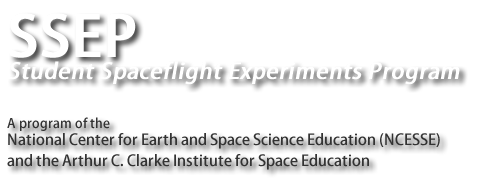The National Center for Earth and Space Science Education (NCESSE), and Arthur C. Clarke Institute for Space Education, are proud to introduce the National Step 2 Review Board for SSEP Missions 18 to the International Space Station (ISS), reflecting a combined Mission 18 participation by 37 communities.
On November 29 and 30, 2023, the Board met at the NASA Goddard Space Flight Center’s Visitor Center, to review 110 finalist proposals for student flight experiments submitted from across 37 communities participating in Mission 18.
Listed below are the 41 Board Members—scientists, engineers, and science educators from academia, federal agencies, commercial entities, and national science education non-profits.
For Mission 18 to ISS, a total of 14,253 grade 5-16 students were formally engaged in designing microgravity experiments suitable for flight aboard ISS. At the conclusion of the experiment design phase, a total of 1,859 proposals were submitted by student teams, and 797 proposals were forwarded for review by SSEP Step 1 Review Boards in the communities. In 2 of the 37 Mission 18 communities, community leadership opted to fly 2 experiments.
For Step 2 review, the Board Members were divided into 12 teams, each comprised of both researchers and science educators, and each team responsible for review of proposals from three or four SSEP communities. The Board Members spent a great deal of time providing thoughtful comments for all 110 proposals, which were forwarded to the proposing student teams by NCESSE. The review went well beyond what is typical of reviews for professional research proposals given the deep recognition that the review process, and the comments back, were critically important teachable moments for the student researchers that worked so hard on their proposals. Through SSEP, we want to immerse students in real science. The review process is very much a part of real science, and that process therefore needs to be transparent and a learning experience.
NCESSE reviewed all comments from the Step 2 Review Board to assess if there were any outstanding questions that needed to be addressed by the selected student flight teams, and by December 15, 2023, NCESSE formally notified each community of their selected flight experiments.
You are invited to explore the selected flight experiments and honorable mention finalist experiments for Mission 18 to ISS.
A Note to All Mission 18 Student Research Teams
To the thousands of students that participated in SSEP Mission 18 to ISS, regardless of whether your proposal was selected for flight, and regardless of whether it formally went before a Review Board, it is important to recognize the endeavor in which you’ve been engaged – real science. This is how real research proceeds from opportunity, to defining a proposed research program, to submission of a proposal, to formal proposal review and selection. In the professional world, comments back from the Review Board allow a team to rethink and refine their proposed research, so they can submit a better proposal for the next opportunity. We have indeed had SSEP student teams that did not get selected for spaceflight the first time, but did get selected with a refined proposal as part of their community’s next flight opportunity.
Reflect on the overall experience, and recognize that you and your team owned this process – you came up with a microgravity experiment of interest to you, and designed it to fly in a research mini-lab that has a very real set of constraints on its operation. So get excited about what you’ve achieved, and get excited about science, technology, engineering, and mathematics (STEM). We challenge you to seek out new opportunities in STEM where you can be curious and take ownership … in the journey.
Finally, recognize that YOUR COMMUNITY now has an experiment destined for the International Space Station, that you are part of this historic adventure, and now you and your community can rally around your flight experiment and root for its success.
The SSEP National Step 2 Review Board for Mission 18 to ISS—
1. Arif Ashraf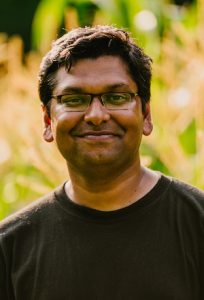
Assistant Professor
Biology Department, Howard Univeristy
Arif is a plant cell biologist and his lab at Howard University utilizes Arabidopsis and maize as model systems to study nuclear envelope protein during movement and mitosis. Previously, he did his postdoctoral work with Michelle Facette at the University of Massachusetts Amherst on polarized nuclear movement during asymmetric cell division. During his graduate study in Abidur lab, Arif first started working with polarized proteins and studied the polarly localized transporter proteins during plant development and environmental response. Arif hosts the plant biology podcast, No Time To Read, and is co-founder of the Plant Postdocs community.
2. Andrea Beckel-Mitchener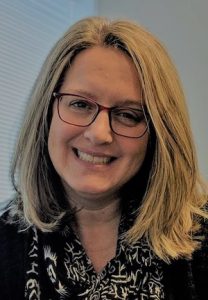
Deputy Director, NIH BRAIN Initiative
National Institute of Mental Health
Dr. Beckel-Mitchener received a Master’s in virology and a Ph.D. in molecular neuroscience from the University New Mexico in Albuquerque, NM. Dr. Beckel-Mitchener currently serves as the Deputy Director of the BRAIN (Brain Research Through Advancing Innovative Neurotechnologies®) Initiative at the National Institutes of Health, Maryland USA. She joined NIH in 2004 and during that time has overseen several large programs and collaborative projects including management of the Functional Neurogenomics program at NIMH, the Common Fund’s Single Cell Analysis Program and the BRAIN Cell Census Network (BICCN). Prior to joining the Office of the BRAIN Director, she led the Office for Disparities Research and Workforce Diversity at NIMH. Before joining NIH, she worked at the University of Illinois, Urbana-Champaign and for GlaxoSmithKline (formerly SmithKline-Beecham) in the U.K. Dr. Beckel-Mitchener is committed research training and equity in research and ensuring research findings are relevant and accessible to all.
3. Shauna Bennett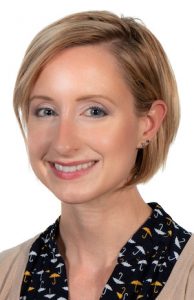
Assistant Teaching Professor
Biology Department, Georgetown University
Dr. Shauna Bennett is a teaching professor in the Biology Department at Georgetown University, where she teaches Foundations of Biology I, Genetics lab, Biochemistry lab, Communicating Science, and non-majors biology courses. She got her BA in Chemistry at Bryn Mawr College, then did her PhD in Cellular & Molecular Biology at the University of Michigan, where she studied DNA tumor viruses. Her previous research focused on understanding how viruses move through cells. Now as a teaching professor, she focuses on helping undergraduates get excited about the fundamental aspects of living organisms as well as the different facets of scientific research. She is hoping to combine her love of biology and viruses with her love of space by getting involved in (and bringing students into) astrobiology projects.
4. Dr. Shaun Brinsmade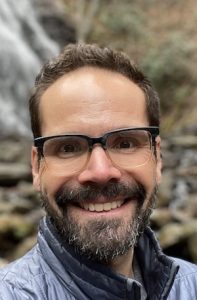
Associate Professor, Department of Biology
Georgetown University
Shaun Brinsmade is a microbiologist and an associate professor in the Department of Biology at Georgetown University in Washington, DC. His research lab uses cutting-edge genetic and biochemical approaches to understand the how bacterial physiology and virulence are connected in Gram-positive bacteria. Currently, his lab is seeking to understand how membrane phospholipid biogenesis controls the activity of a major regulator of virulence gene expression in Staphylococcus aureus. To learn more, visit www.brinsmadelab.com.
5. Dr. James Churchill
Senior Advisor
National Institute of Mental Health
Dr. James Churchill serves as Senior Advisor to the Director at the National Institute of Mental Health (NIMH). Dr. Churchill is a neuroscientist and has conducted research evaluating the anatomical and physiological basis of learning and memory. During his tenure at the NIMH, Dr. Churchill has managed a variety of projects from supporting young investigators to managing BRAIN Initiative efforts in the areas of next generation human brain imaging and neuroethics to the coordinating interagency research on suicide.
6. Dr. Douglas Dluzen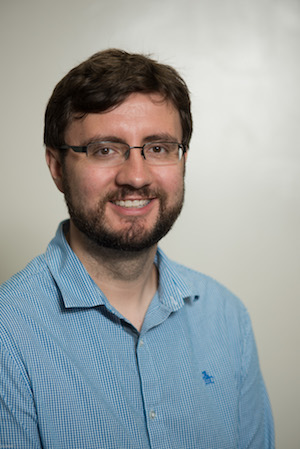
Director of Doctoral and Postdoctoral Life Design
Johns Hopkins University
Douglas Dluzen, PhD, is Director of Doctoral and Postdoctoral Life Design at Johns Hopkins University. He’s previously been a senior science writer and editor at the NIMHD and Assistant Professor of Biology at Morgan State University. He is a geneticist and has previously studied the genetic contributors to aging, cancer, hypertension, and other age-related diseases. He loves to write about science of all topics and make up science fiction and fantasy stories while sitting on the couch with his family.
7. Dr. José Feijó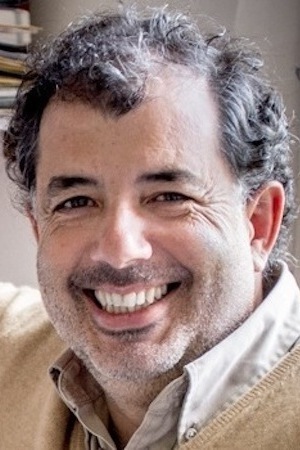
Professor, Department of Cell Biology and Molecular Genetics
University of Maryland
José is a Professor at the University of Maryland. He is a Plant Cell Biologist, focusing on reproduction and using the male gametophyte of plants as a model system to understand the fundamental properties of cellular growth, morphogenesis, and cell to cell communication. José uses a combination of live imaging, electrophysiology and genetics tools, and interfaces with biophysics by developing mathematical and computational models. He has been involved in a number of major initiatives for science vulgarization, including being the curator of one of the world largest exhibitions organized to commemorate Darwin’s bicentenary (“Darwin’s Evolution”) with the Gulbenkian Foundation, which included collaborations with the Natural History Museums of New York, London, Madrid, Paris, Berlin, etc. The exhibition toured 6 venues in 3 countries reaching close to 0.5 million visitors. He was a founding member and editor for Biology of “Casa das Ciencias”, a web portal dedicated to science educators and students in Portuguese (casadasciencias.org), which sponsors the adaptation of education materials to Portuguese, and publishes original educational materials. José has organized international courses and workshops on live imaging and Plant Development, and is involved in teaching plant biology and microscopy in the first BioMedical Ph.D. program in Portuguese speaking Africa, taking place at the University of Cape Verde.
8. Dr. Talita B. Gagliardi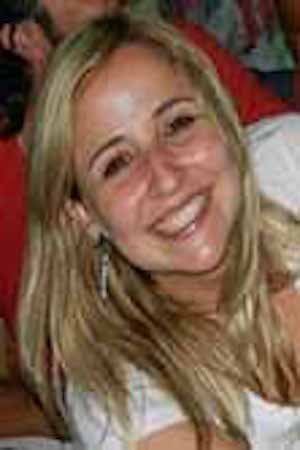
Research Assistant, Department of Cell Biology and Molecular Genetics
University of Maryland, College Park
Talita B. Gagliardi is Research Assistant at the University of Maryland (UMD). She is Bachelor in Biomedical Science and Specialist in Clinical Analysis; and obtained her PhD in Molecular and Cell Biology & Microbiology from University of São Paulo (SP, Brazil) in 2012. She worked as Postdoctoral Fellow in University of São Paulo (SP, Brazil; 2012-2016) and in Columbia University (NY, USA; 2013). Recently, she has been conducting studies about human rhinoviruses and human influeza virus together with Dr. Margaret Scull’s group. Talita’s interests are studying about human respiratory viruses regarding their replication; the effect of virus variability to the immune response; pathogenesis of viral infection; search for potential antiviral targets and vaccine production. She always looks forward to expand her contribution to Virology area, as collaborating in studies about animal viruses; and also in educational area.
9. Dr. Matt Giorgianni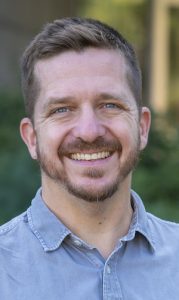
Assistant Research Scientist, Department of Biology
University of Maryland
Matt Giorgianni is an Assistant Research Professor at the University of Maryland where he studies evolution in the venom genes of viperid snakes. Matt obtained his B.S. in Biology at the University of Oregon before moving to the University of Chicago for his Ph.D. in Evolutionary and Developmental Biology. He went on to do postdoctoral work at Columbia University and the University of Wisconsin, Madison, before moving to Maryland. Matt’s research has used Molecular Biology, Embryology, Genetics, and Genomics and a wide array of systems, including Zebrafish, frogs, fuitflies, beetles, crustaceans and snakes, all with the goal of understanding how Evolution works.
10. Benjamin Goodman, Ph.D.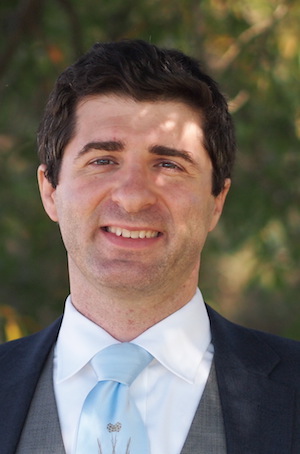
Senior Scientist
NASA Research and Education Support Services
Ben Goodman is a peer review administrator for NASA whose work currently focuses on programs spanning the Human Exploration and Operations Mission Directorate, Science Mission Directorate, and the Space Technology Mission Directorate. He has been a peer review administrator for over ten years, and has gained a familiarity with a wide variety of NASA programs and research portfolios while recruiting and serving as referee for many panels and solicitations, especially those dealing with NASA life sciences programs. Before working for NASA, he performed research on mitotic spindle assembly in Xenopus and cell culture while at Johns Hopkins University, where he received his Ph.D. in Cell Biology, and also served as a post-doctoral researcher at the NIH where he worked on microtubule post-translational modifications.
11. Mr. John Hamel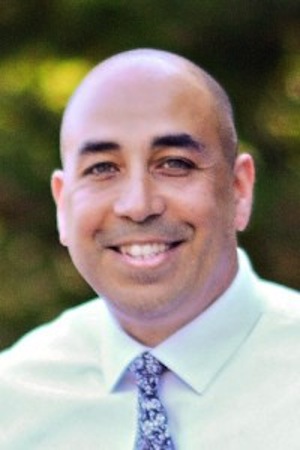
Flight Operations Manager, Student Spaceflight Experiments Program (SSEP)
Education Program Manager, National Center for Earth and Space Science Education (NCESSE)
John is the Education Program Manager at the National Center for Earth and Space Science Education. He provides logistics and coordination support for NCESSE’s various programs, including SSEP, Family Science Night and Voyage. As the SSEP Flight Operations Manager, John provides logistics support for all phases of flight operations, as well as website content development, coordination support for the annual SSEP National Conference, organization of SSEP delegations attending a mission launch, and overseeing the Mission Patch design competitions for each SSEP Mission. John also has extensive experience with non-profit education organizations and a certified association management group. He spent the early years of his career working directly with pre-school and school-aged children.
12. Ms. Stacy Hamel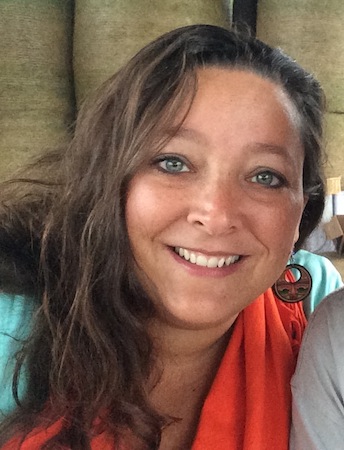
Senior Flight Operations Manager, Student Spaceflight Experiments Program (SSEP)
Senior Education Program Manager, National Center for Earth and Space Science Education (NCESSE)
Stacy Hamel is the Senior Education Program Manager for the National Center for Earth and Space Science Education, and also serves as the Senior Flight Operations Manager for the Student Spaceflight Experiments Program (SSEP). As the Senior Flight Operations Manager, Stacy oversees all aspects of SSEP from the microgravity experiment design and proposal competition phase, to proposal review and selection, experiment refinement and validation for flight, launch, on-orbit operations, and experiment return to Earth for harvesting and analysis. In this capacity she also serves as the liaison to NanoRacks on all flight experiments and issues associated with NASA flight safety review. Stacy manages SSEP international participation through the Arthur C. Clarke Institute for Space Education. She oversees the Flight Operations team, including Flight Operations Managers and Coordinators.
13. Dr. Susan Harbison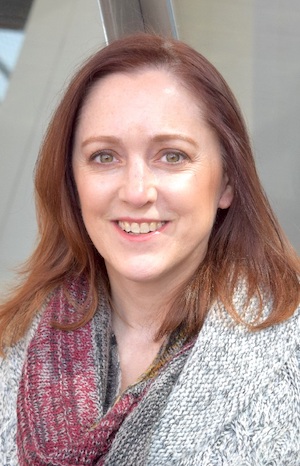
Senior Investigator, Laboratory of Systems Genetics
Systems Biology Center, National Heart Lung and Blood Institute
Susan T. Harbison, Ph.D., is a Senior Investigator at the National Heart, Lung, and Blood
Institute. The goal of her research is to understand the role of genomic variation in sleep andcircadian rhythms. Her lab applies systems genetics and CRISPR transgenic approaches to the model organism Drosophila melanogaster in order to reveal the genetic networks underlying these behaviors. Current work focuses on the manner in which the genes in these networks interact with one another, how they respond to environmental perturbations, and to what degree they have been conserved across species—from flies to humans. Dr. Harbison obtained her Ph.D. from North Carolina State University in quantitative genetics and completed postdoctoral training at N. C. State and at the University of Pennsylvania.
14. Dr. Vincent Holahan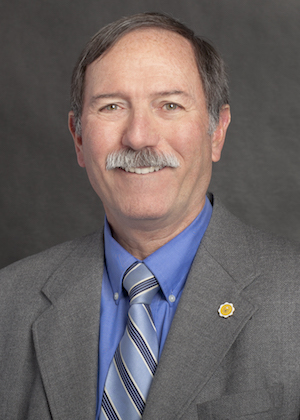
Senior Level Advisor for Health Physics
U.S. Nuclear Regulatory Commission
Dr. Holahan is responsible for developing technical standards for issuing federal regulations and guidance to possess and use radioactive materials by academic, industrial and medical licensees. His specific research interest is public and occupational health and developing guidance to limit occupational and public exposure to ionizing radiation during routine and emergency situations. He also is the current U.S. Representative to the United Nations Scientific Committee on the Effects of Atomic Radiation. Before joining the Nuclear Regulatory Commission in 1996, he was a senior program officer to the Board of Army Science and Technology at the U.S. National Research Council/National Academies of Science. Dr. Holahan completed 35 years of active and reserve service in the U.S. Army as nuclear medical sciences officer. His military research interests include the study of both ionizing and non-ionizing radiation and its impact on military performance. Dr. Holahan received a Bachelor of Arts degree in chemistry and a Bachelor of Sciences degree in biology from Gonzaga University. He received his doctoral degree in Radiology and Radiation Biology and an interdisciplinary degree in Cellular and Molecular Biology from Colorado State University. His graduate research interests include the combined use of heat and ionizing radiation as a new modality for cancer treatment.
15. Pauline Ikpa
Post-doctoral Fellow
Division of Gastroenterology and Hepatology, Johns Hopkins University School of Medicine
Pauline recently completed 10 years of service at the Erasmus Medical Center Rotterdam, the Netherlands where she completed her PhD and post-doctoral research. She started a new post-doctoral position in October of 2022 in Johns Hopkins University School of Medicine, Baltimore, Maryland in the Division of Gastroenterology and Hepatology.
16. Dr. Beatrice Kondo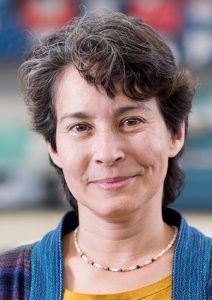
Senior Lecturer, Fischell Department of Bioengineering
A. James Clark School of Engineering, University of Maryland, College Park
Dr. Kondo’s undergraduate studies were at Loyola University in Baltimore. She then began a career in software test engineering, testing Hubble Space Telescope management and control software, before transitioning to the private sector, testing communications systems.
Eventually the siren song of higher education lured her to a return into academia, and she completed a doctorate in Biological Sciences at the University of Maryland, Baltimore County in 2006. Her publications are in the area of molecular phylogenetics, with a special emphasis on closely-related species and the evolution of migration in New World Orioles. Recognizing a love of teaching during her graduate career, Dr. Kondo pursued a teaching post-doc at Cornell College in Iowa, famous for its unusual one-course-at-a-time curriculum. After this, she taught for four years in the undergraduate program of the Department of Biology at The Johns Hopkins University, before joining the Advanced Academic Programs, Center for Biotechnology Education at Johns Hopkins in Fall 2011. After that, she served as a senior analyst for a policy consulting company for a year, before returning to academia as a Senior Lecturer in the Fischell Department of Bio-engineering, University of Maryland.
17. Crystal Lantz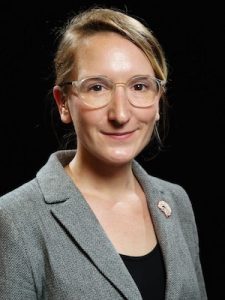
Science Advisor – Programs
NIH BRAIN Initiative
Dr. Crystal L. Lantz serves as a Science Advisor for Programs for the Brain Research Through Advancing Innovative Neurotechnologies® (BRAIN) Initiative at the National Institute for Neurological Disorders and Stroke (NINDS). Dr. Lantz is a neuroscientist and uses her expertise to shape BRAIN Initiative programs. Prior to her work at the BRAIN Initiative Dr. Lantz’s research focused on how experience shapes development and function of sensory systems.
18. Jonathan Lees, Ph.D.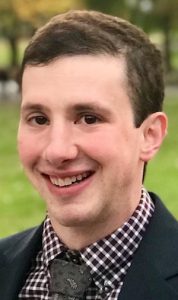
Research Scientist
PlantVax, Incorporated
Jonathan Lees is a scientist at PlantVax, a biotechnology company in Maryland. There he purifies recombinant proteins, which are expressed primarily in Nicotiana benthamiana plants (in the same family as tobacco). These various purified proteins are used in vaccine trials, primarily for the prevention of HIV transmission from mother to baby, or as components for products to rapidly detect the presence of organophosphates. During his PhD work in the Department of Biology at Johns Hopkins University, he studied how Fis1, a mitochondrial fission protein, dimerizes and possible implications to its function.
19. Dr. Tim Livengood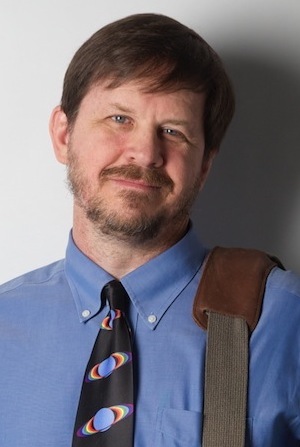
Adjunct Space Science Researcher, National Center for Earth and Space Science Education (NCESSE)
Research Scientist, University of Maryland Department of Astronomy
Dr. Tim Livengood is a senior advisor to SSEP and adjunct research scientist with the National Center for Earth and Space Science Education. He is a research scientist with the University of Maryland Department of Astronomy and works at NASA’s Goddard Space Flight Center. Tim has been a presenter and team leader for the Center’s public and school programs and has visited hundreds of classrooms. His current research uses a neutron-detecting instrument on the Lunar Reconnaissance Orbiter to measure deposits of water on the Moon, and uses infrared spectroscopy from telescopes on Earth to measure composition, temperature, and wind velocity in the atmospheres of other planets.
20. Catherine Maggiori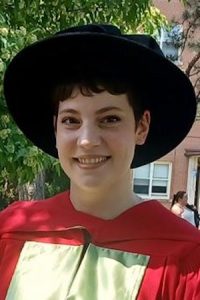
Postdoctoral Researcher
Department of Biology, Georgetown University
Catherine is a postdoctoral researcher in the Johnson Biosignatures Lab at Georgetown University. She completed her Ph.D. in microbiology at McGill University, where she studied unambiguous life detection for astrobiology and field tested instrumentation in extreme Mars analogue environments. Catherine now works on developing methods for agnostic life detection, conducting experiments to define sample complexity through molecular complementarity and DNA sequencing. Catherine is passionate about exploring the intersection of microbial life and astrobiology in terms of planetary protection, biosignature detection, extremophile metabolisms, and astronaut support. She is always excited to contribute to astrobiology outreach and encourage students to pursue space science.
21. Shrestah Mathur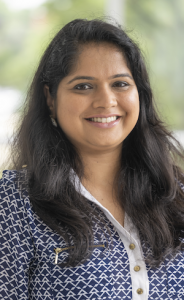
Postdoctoral Associate, Department of Cell Biology and Molecular Genetics
University of Maryland, College Park
Shrestha Mathur is a postdoctoral fellow at the University of Maryland (UMD). She completed her B.Sc. in Genetics, Microbiology and Chemistry in 2007 and M.Sc. in Microbiology in 2009 from Bangalore University, India. She obtained her Ph.D. in Biological Sciences from Binghamton University, NY, USA in 2021. She worked as a Postdoctoral Associate at the University of Maryland from 2021 to 2023 with Dr. Volker Briken’s group, understanding how Mycobacterium tuberculosis affect host inflammasome pathways. Presently, she has been conducting research as a postdoctoral fellow in Dr. Margaret Scull’s lab at the University of Maryland. Shrestha’s current focus is on studying how host airway epithelial mucus membrane affects infection by influenza virus. She is continuously looking for growth opportunities as a microbiologist and looks forward to expanding her contribution to the field of science outreach initiatives.
22. Mr. Orville Mayberry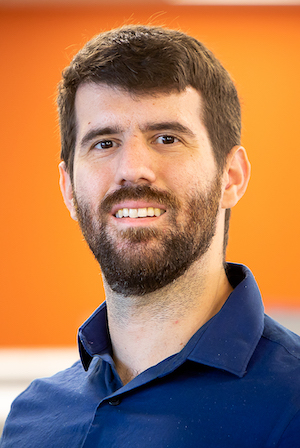
R&D Scientist II
Becton, Dickinson and Company
Ory received his BS in genetics from the University of Georgia and MA in biology from Johns Hopkins University. He worked for four years as a public health scientist at the Maryland Department of Health, Division of Newborn and Childhood Screening testing every baby born in Maryland for a large panel of hereditary and metabolic disorders including sickle cell anemia, cystic fibrosis, and galactosemia. He is now a molecular R&D scientist at BD working in in vitro diagnostics assay development. The most recently announced assay he has worked on is the Respiratory Viral Panel for the fully automated BD MAX platform capable of testing for SARS-CoV-2, Flu A, Flu B, and respiratory syncytial virus (RSV) all from the same patient swab. Outside of work, he enjoys time with his parrots, snakes, and carnivorous plants, playing board games, and scuba diving.
23. Benton Murphy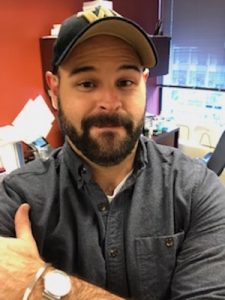
Director of Fund Administration
Greater Washington Community Foundation
Benton Murphy is a professional grantmaker with more than twenty years’ experience working in the charitable sector and currently provides philanthropic advisory and grantmaking support services as the Director of Fund Administration at the Greater Washington Community Foundation. Benton is also a Certified Master Gardener through the Master Gardeners of Northern Virginia where he specializes in vegetable gardening, cacti and succulents as well as orchid care and propagation. Through MGNV, Benton serves as a member of the public education committee and has developed and held lectures on subjects including Succulents and Cacti as well as Orchid care. Benton also maintains the vegetable garden at the Fairlington Small Spaces Demonstration Garden across the street from his home in Arlington, Virginia where he lives with his partner Dave and their cat Alakazam. Benton holds an Undergraduate degree from the University of Washington, Seattle and a Masters in Public Administration from the George Washington University.
24. George J. Papanicolaou, Ph.D.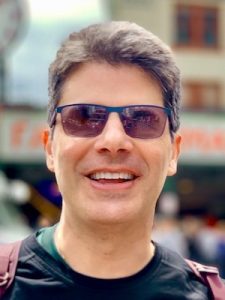
Common Fund Data Ecosystem (CFDE) Program Leader, Office of Strategic Coordination
Office of the Director, National Institutes of Health
Dr. Papanicolaou joined the Office of Strategic Coordination in 2021, where he helps integrate data from multiple Common Fund programs with the Common Fund Data Ecosystem (CFDE). Previously, Dr. Papanicolaou worked as a Research Geneticist in the Epidemiology Branch in the Division of Cardiovascular Sciences in the National Heart, Lung, Blood Institute (NHLBI). While a Program Director at NHLBI, he led efforts in genomics and omics in diverse programs such as Candidate Gene Resource (CARe), SHARe (SNP Health Association Resource), Omics in Latinos (OLa), Trans-Omics for Precision Medicine (TOPMed), and TOPMed’s Centralized Omics Resource (CORE). He was also the Program Officer for the Framingham Heart Study. George received his Ph.D. in Human Genetics from the University of Michigan, studying and mapping tumor suppressor effects of regions of chromosome 6 on melanoma. He also lectured and served as a discussant at Johns Hopkins.
25. Dr. Saroj Pramanik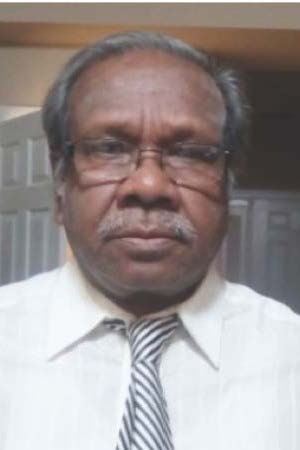
Associate Professor, Department Biology
Morgan State University
Dr. Pramanik’s research uses wide varieties of Biological Systems and several molecular tools. His primary area of research interest is Regulation of Protein Synthesis during Cellular Differentiation. He isolated couple of unique cDNA clones which are published in peer reviewed journals. His Alfalfa Ubiquitin Carrier Protein (E2) is in the MyBiosource Com catalogue (# MBS 1093121). Dr. Pramanik’s other research interest is on somatic embryogenesis of plants. Any segment of the plant can be induced to generate an embryo, which are as good as a normal seed. This technique is known as artificial embryos. At Morgan State University, Dr. Pramanik’s lab is working on Bioremediation of Toxic Chlorinated Chemicals (PCBs, Triclosan, DDT, etc.) using Nano-Phytotechnology and Plant-Microbial Interactions and on Rhenium-based Anticancer Drug Development (with collaboration). Dr. Pramanik received his bachelors’ degree in Agriculture (BCKV, WB, India), MS and Ph.D in Biochemistry (Indian Agricultural Research Institute, New Delhi, India), and postdoctoral research work on Myoblast Differentiation at Memorial University of Newfoundland, and Somatic Embryogenesis of Alfalfa plant at University of Guelph, Canada.
26. Courtney J. Robinson, Ph.D.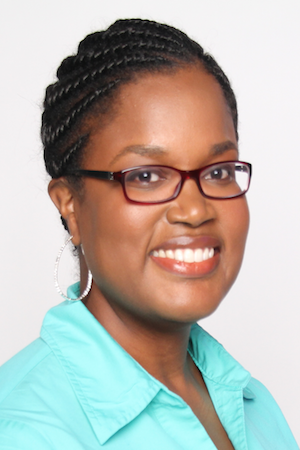
Associate Professor of Biology
Howard University
Courtney J. Robinson is an Associate Professor of Biology at Howard University. She earned a B.S. in Microbiology from Xavier University of Louisiana, and a Ph.D. in Microbiology from the University of Wisconsin – Madison. From 2008-2011 she was a postdoctoral fellow at the University of Michigan – Ann Arbor. Her research explores the role of the gut microbiota in insect health and transmission of disease, as well as microbial communities associated with abiotic hosts. She is the director of the Science Education Alliance – Phage Hunters Advancing Genomics and Evolutionary Science course at Howard. Courtney is also the recipient of two subcontracts from the Department of Energy, through which Howard students conduct research in collaboration with Pacific Northwest National Laboratory. As co-PI of the NSF-funded Howard University Science Teacher Certification Program, she also is helping to develop a program to certify Biology and Chemistry majors to teach science in DC Public Schools.
27. Anais Roussell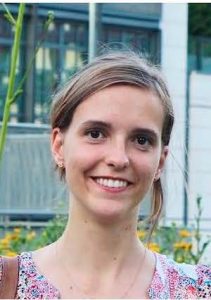
PhD candidate
Georgetown University
Anaïs Roussel is an astrobiology and organic geochemistry PhD candidate in the Sarah Johnson Lab at Georgetown University (Washington DC), working in collaboration with NASA Goddard Space Flight Center (Greenbelt, MD). She is interested in biosignatures preservation and detection on other planets and moons of the solar system. Her main focus is on the impact of galactic cosmic radiation on biosignatures preservation on Mars, and how this knowledge can help the rover missions (Curiosity, Perseverance, Rosalind Franklin) target the most promising sampling sites. Before starting her PhD at Georgetown, she got a Master’s degree in Biotechnologies Engineering (France) and researched biomarkers preservation in Cambrian rocks as a member of the Summons Lab at MIT (Cambridge, MA).
28. J. Reid Schwebach, Ph.D., Ed.M.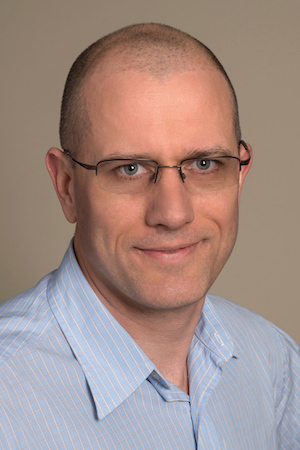
Project Director, Research Competitiveness Program (RCP)
American Association for the Advancement of Science (AAAS)
Dr. Schwebach is an RCP Project Director at AAAS. He is currently working on and developing projects that provide essential advisory and support work, proposal review, and infrastructure assessment for RCP. He received his PhD in microbiology and immunology from the Albert Einstein College of Medicine. He holds Ed.M. (secondary science education) and M.A. (international education development) degrees from Teachers College, Columbia University. He has a BA in agriculture and a BS in biochemistry from New Mexico State University. Before coming to AAAS, Reid was a Program Manager, Coordinator, and Assistant Professor for the College of Science at George Mason University, from 2010-2018. At Mason, he helped develop a new undergraduate curriculum in bioinformatics, was the founding coordinator of the Governor’s School @ Innovation Park, taught phage ecology undergraduate research, and was involved with several NSF projects. Before Mason, he worked for the Board on Science Education at The National Research Council. From 2007-2008, he was an American Association for the Advancement of Science sponsored Science and Technology Policy Fellow at the National Science Foundation, in The Division of Research and Learning. In the NYC public school system, he taught high school chemistry and independent student research at The Beacon School. His scientific research focused on the immunology of M. tuberculosis, the bacterial pathogen that causes tuberculosis.
29. Dr. Margaret Scull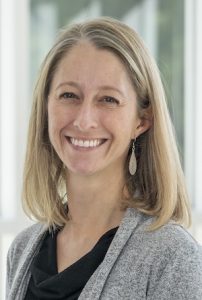
Associate Professor, Department of Cell Biology and Molecular Genetics
University of Maryland, College Park
Margaret Scull obtained her Ph.D. in Microbiology and Immunology from the University of North Carolina at Chapel Hill in 2009. After completing her post- doctoral research at the Rockefeller University, she joined the faculty at the University of Maryland – College Park as an Assistant Professor. Dr. Scull’s lab works at the interface of virology and cell biology. Specifically, her research focuses on virus-host interactions in the airway epithelium – the primary target for infection by influenza virus and other clinically relevant respiratory viruses. Her research uses a variety of tools, including microscopy, deep sequencing technology, viral genetics, and in vitro primary cell model systems to understand mechanisms of host restriction and innate defense against viral infection. In addition to her work in the lab, Dr. Scull has been active in science education Outreach, including after school mentoring in STEM education and volunteering as both an educator on the BioBus mobile laboratory and as a judge at science fair competitions in the New York City area.
30. Dr. Nick Shworak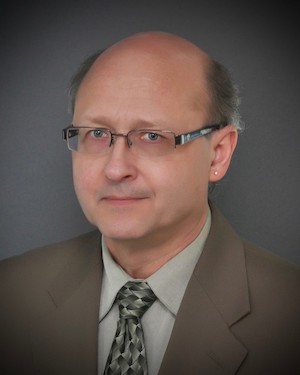
Associate Professor, Department of Pharmacology and Physiology
School of Medicine and Health Sciences, The George Washington University
Dr. Shworak is an Associate Professor of Pharmacology & Physiology and a Medical Educator of the School of Medicine and Health Sciences, The George Washington University (DC). His degrees are: BSc (Zoology, 1981; University of Calgary, AB, Canada), MD (1985; University of Edmonton, AB), PhD (Molecular Biology, 1990; University of Calgary), and MA Ed (2022; The George Washington University). For almost 30 years, he has studied the roles of polysaccharides in health and disease in a variety of disciplines including cardiology, neurology, virology, as well as developmental and reproductive biology. Much of his biomedical research was conducted at Massachusetts Institute of Technology, Harvard University, and Dartmouth College. Most recently Dr. Shworak has identified a gene that protects against inflammatory disorders and may be a genetic risk factor for coronary artery disease. He teaches pre-clerkship sciences to medical, physician assistant, and graduate students.
31. Dr. Julia Slocomb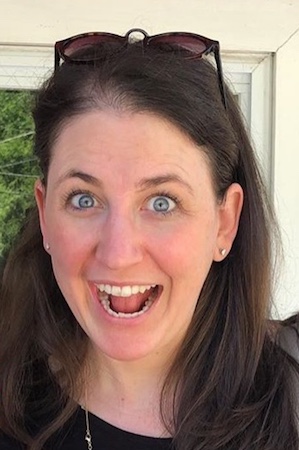
Lead Reviewer/Neuroscientist, Center for Devices and Radiological Health
Food and Drug Administration
Julia earned her B.S. in Biology with a minor in English Literature from Villanova University and her Ph.D. from the Cellular, Molecular, Developmental Biology and Biophysics program at Johns Hopkins University. Her dissertation focused on the neuronal circuits that drive survival behaviors, such as feeding. Between her undergraduate and graduate degrees, Julia spent 5 years managing interdisciplinary clinical research studies for the Pennsylvania State University College of Medicine’s Department of Neurology. As a lead reviewer at the FDA, Julia reviews neurological and physical medicine devices for safety and effectiveness. She also writes new medical device regulation and is involved in the development of standards in Brain-Computer Interfacing devices. In her spare time she works as an editor of science fiction and fact articles to help bring cutting edge science to the public.
32. Dr. Michelle Starz-Gaiano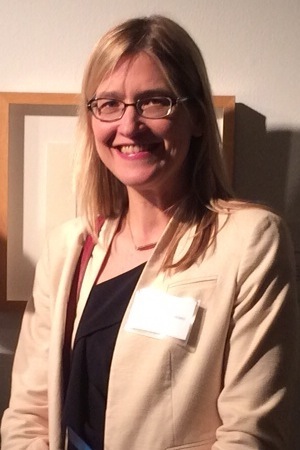
Adjunct Staff Member, National Center for Earth and Space Science Education
Professor, Department of Biological Sciences
University of Maryland Baltimore County
Dr. Starz-Gaiano investigates the genetic control of animal development. In particular, her studies focus on understanding how cells adopt different identities and move through complex environments. She uses the vast genetic tools developed in fruit flies to identify new molecules involved in these processes. Interestingly, many of the same genes that regulate development in flies are required in the development of other animals, including humans. Currently, much of the work from her research group focuses on the regulation of the Janus Kinase and STAT molecular signaling pathway. Dr. Starz-Gaiano earned a bachelor’s degree from MIT, a PhD from NYU, and completed postdoctoral work at Johns Hopkins Medical School before starting at UMBC in 2008.
33. Dr. Pushpa Tandon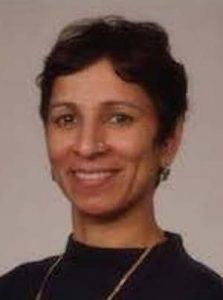
Program Director, Cancer Imaging Program
National Cancer Institute
Dr. Pushpa Tandon received her Master’s in Biochemistry and her Ph.D. in Neurochemistry, from the University of Lucknow, India. Dr. Tandon is currently a Program Director, within the Cancer Imaging Program, and the Administrative Deputy Director, of the Quantitative Imaging Network, an international Network for development of quantitative imaging tools for prediction of tumor response to treatment, at the National Cancer Institute, Maryland, USA. She has been working in the field of Cancer Imaging for over 25 years and has developed and manages several international programs and collaborations around the world. She was involved with the establishment of low cost, point-of-care technologies for cancer program at NCI and currently manages several of the international project under it . She has been a mentor to several Ph.D students and enjoys working with students at all levels. Her main interests are cancer imaging, cancer biomarkers, inflammation and nanotechnology. Dr. Tandon is interested in the holistic approach to medicine. She was awarded the United States Embassy Science fellowship in summer 2018 to develop a bilateral Indo-US bilateral program on Indian Traditional medicine and cancer. She has published over 50 peer review articles and several book chapters.
34. Alex Theos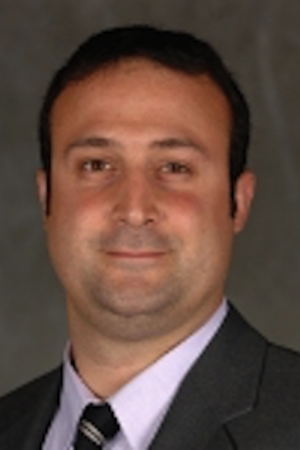
Adjunct Staff Member, National Center for Earth and Space Science Education
Associate Professor
Georgetown University
Alex Theos is an Associate Professor at the Department of Human Science in the School of Nursing And Health Studies at Georgetown University. His research interests include the biogenesis of specialized organelles, focusing on the intracellular membrane trafficking pathways. Currently, his research lab is working to understanding the cell biology of the GPNMB protein, which is associated with diverse pathologies including melanoma and pigmentary glaucoma.
35. Zehra Tosun
Lead Biologist
Food and Drug Administration
Zehra serves as a lead biological product reviewer in the Tissue Engineering Branch (TEB) at the Center for Biologics Evaluation and Research’s (CBER) Office of Tissues and Advanced Therapies (OTAT). Her review work includes tissue engineered medical products, cell therapy products, and medical devices. She provides advice and analysis of regulatory issues regarding the safety of tissue engineering products and medical devices and coaches the team in the selection and application of appropriate problem-solving methods and techniques. Zehra provides leadership, guidance, and regulatory expertise to address and solve complex issues consistent with technological developments or new scientific evidence.
36. Dr. Hemayet Ullah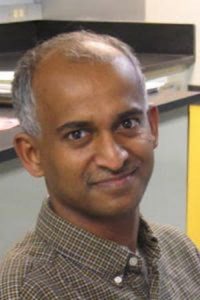
Associate Professor, Department of Biology
Howard University
Dr. Hemayet Ullah is an Associate Professor at the Department of Biology in Howard University. His research interests are in the field of plant biology, especially plant cell signaling, environmental stress physiology, and plant molecular and cellular biology, with current emphasis on unraveling the signaling pathways of extracellular signals inside the cell.
37. Dr. Harri Vanhala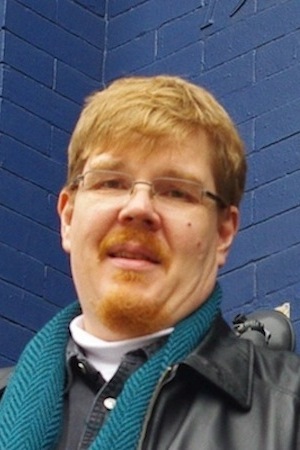
Adjunct Space Science Researcher, National Center for Earth and Space Science Education
Senior Scientist, Arctic Slope Technical Services
Originally from Finland, Harri received his Ph.D. in astronomy from the University of Oulu. Harri has worked in various research and education organizations in the Unites States for 20 years. He is a Senior Scientist at Arctic Slope Technical Services, where he works with NASA’s Space Technology and Human Exploration and Operations Mission Directorates to help select new space technology projects for development and experiments for flight to the International Space Station. His science research focuses on the use of computer simulations to investigate the origin of the Solar System and the formation of stars and planetary systems across the Universe. His science education activities have included hundreds of visits to grade K-12 classrooms, conducting teacher training workshops, teaching college courses, and presentations to families and the public—he is one of the presenters for the Center’s Family Science Night program at the Smithsonian National Air and Space Museum.
38. Fayuan Wen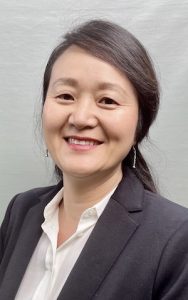
Assistant Professor of Computational Biology
Department of Biology, Howard University
Dr. Fayuan Wen is an Assistant Professor of Computational Biology within the Department of Biology, Howard University. After receiving her PhD in Virology and Entomology from Chinese Academy of Forestry, she started postdoctoral training in Cellular Biology and Bioinformatics at University of Guelph and Natural Resources of Canada. She then joined Howard University in 2017 as a postdoc associate where she adeptly applies advanced computational biology techniques and biostatistical tools to biomedical and health research domains. Dr. Wen’s expertise lies in the analysis of bioinformatics data from next-generation sequencing (NGS) such as RNA-seq and Whole Genome Sequencing (WGS). Her research trajectory encompasses diverse areas, including whole genome sequencing analysis of Sickle Cell Disease (SCD), investigations into gene regulation during host-virus interactions, cellular transcriptional responses to chemical treatments. Currently, Dr. Wen focuses on gene variant identification relevant to Iron Overload in Sickle Cell Disease, utilizing genome-wide association studies (GWAS) and machine learning-based Polygenic Risk Score Analysis. Additionally, her projects involve rigorous bioinformatics analysis of NGS data and biostatistical evaluations of electronic health record data, underscoring her multifaceted contributions to the field.
39. Maggie Weng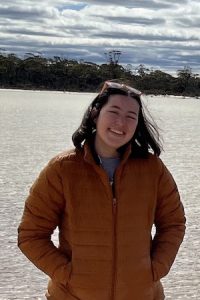
PhD Candidate, Johnson Biosignatures Lab
Georgetown University
Maggie Weng is a PhD candidate studying the ecology and habitability of hypersaline lakes and what they can tell us about life on other planets. She earned a bachelor’s degree in Environmental Earth Sciences from Washington University in St. Louis, where she worked with Ray Arvidson using remote sensing to study the Martian surface. She also completed a summer research fellowship at NASA Goddard Spaceflight Center, where she investigated the spaceflight compatibility of a handheld DNA sequencer. In her current work, she uses the tools of next-generation sequencing to study microbial communities in Western Australia as well as a commercial saltern in San Diego. She hopes to continue exploring the world’s extreme places to understand the limits of life on our world and beyond.
40. Dr. Junior West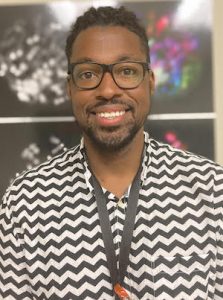
Post-Doctoral Fellow
Johns Hopkins University
Dr. West obtained his BSc and PhD in Cell and Systems Biology from the University of Toronto, where he studied cell and molecular mechanisms that govern epithelial morphogenesis using embryonic development of the fruit fly Drosophila melanogaster as his model system. His passion for understanding how epithelial tissue are able to undergo complex morphogenetic events led him to his current position as a postdoctoral fellow in the Prof. Andrew Ewald’s lab at Johns Hopkins University School of Medicine. Here he studies cellular and molecular mechanisms that are used by epithelial tubes that comprise the mammary gland as they grow and establish proper organ architecture, and how these mechanisms are disrupted during breast cancer progression. To do this he grows miniature versions of this organ – also known as organoids – in a dish!
41. Maruf Olaide Yekeen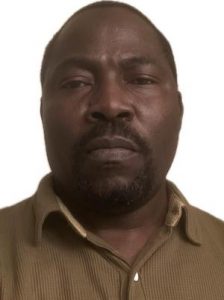
Doctoral Candidate
Department of Biology, Morgan State University
Mr. Yekeen graduated from Obafemi Awolowo University, Ile-Ife, Nigeria, with a B.Sc. in biochemistry. He received his master’s degree in cell biology and genetics from the University of Ibadan, Nigeria. He also bagged a master’s degree in plant genetics and molecular biology from the University of Ibadan, Nigeria. He is a doctoral candidate and Adjunct Lecturer at the Department of Biology, Morgan State University. His research interests are on ecotoxicology and the Bioremediation of toxic inorganic and polychlorinated organic chemicals.
